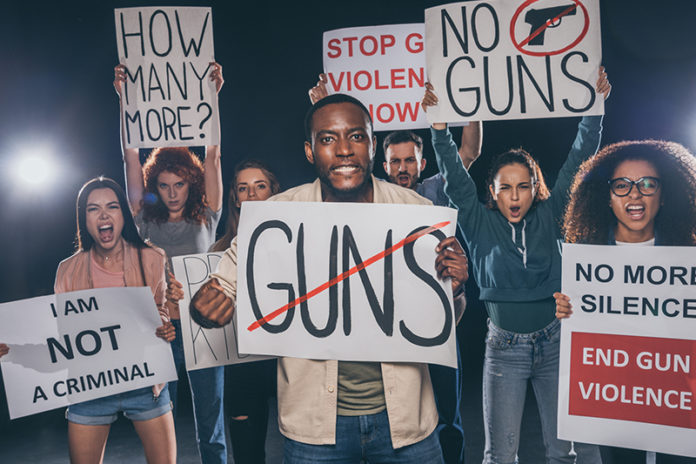Neither California nor California-based judges miss an opportunity to display their anti-Second Amendment bias, most recently in a pair of federal court rulings upholding the state’s bans on so-called “assault weapons” and on firearms magazines able to hold more than 10 rounds.
The state’s anti-firearms laws, and their support from the still-liberal Ninth Circuit panel of judges, highlight a problem that continues to bedevil Second Amendment supporters – that is, defending the Bill of Rights’ guarantee of the “right to keep and bear arms” in terms of need rather than principle.
In a report I authored for the Heritage Foundation earlier this year, I argued that defending the Second Amendment by asserting individuals have a need to own a particular type of gun or accessory – which is how many conservatives frame their arguments against gun-control laws – leaves advocates of the Amendment vulnerable to precisely what the federal appellate courts have done in so many recent opinions declaring such “needs-based” restrictions to be constitutional.
For example, in the 7-4 decision upholding the magazine ban, the Ninth Circuit deemed the measure constitutionally acceptable because it “interferes only minimally” with the Second Amendment, and because “there is no evidence that anyone ever has been unable to defend his or her home and family due to the lack of a large-capacity magazine.”
To borrow from the late, great Justice Antonin Scalia, this is “pure applesauce.” These judges cannot possibly know whether such evidence exists, or that the lack of evidence now does not mean it will not be there in the future. The Court’s ruling is based simply on the judges’ opinion on whether there is a “need” for such a firearms accessory, thereby justifying another chip taken from the foundation of the fundamental right to self-defense embodied in the Bill of Rights.
So long as defenders of the Second Amendment compete on this playing field, it will remain extremely difficult – bordering on impossible – to fend off legislative attacks such as those by California. Each win by the Left provides justification for the next step to limit guns, ammunition, or firearms accessories.
Many gun-control advocates actually understand that it is not a firearm’s accessories or even the type of gun, that determines its lethality in the commission of a crime (though they rarely admit to this understanding). But to them, and for the judges who support their arguments, there is little reason to be concerned with facts that conflict with their anti-gun narrative, since they are not forced to justify their reasoning under any meaningful scrutiny.
If gun-control advocates are allowed to continue making needs-based arguments in support of laws restricting particular firearms, accessories, or ammunition as not being essential to “bearing arms,” Second Amendment advocates will be forced continually into playing defense, even though from a historical and constitutional perspective, that responsibility clearly should rest with the government.
Rather than attempting to show why a particular rifle platform or magazine is “needed,” conservatives instead must come to be sufficiently confident in their constitutional arguments – go on offense and force the government to present evidence, under strict scrutiny, as to why those rights should be curtailed by some arbitrary measure, such as the number of rounds in a gun’s magazine or clip.
This approach certainly would require more evidence than some coincidental relationship of magazine size to mass shooting events. Such a low (actually non-existent) standard of proof, however, is what has been happening for decades, as courts have permitted federal and state governments to chip away, bit by bit, at the foundation of the Second Amendment by claiming that no piece removed represented a significant “need.”
As Samuel Adams, one of our Founders wrote in The Rights of the Colonists, the “natural rights of the Colonists” are life, liberty, and property, along with the overarching right of the Colonists “to support and defend them in the best manner they can.”
This “duty of self-preservation” as Adams called it, is vested not in the government, but in individuals themselves. Now, just as in 1772, there is not and should not be, a requirement that any law-abiding citizen must justify a need for how he or she chooses to exercise that fundamental right, any more than a reader of the Washington Examiner should be forced to justify his or her “need” for that magazine in order to defend against government censorship of it.





























